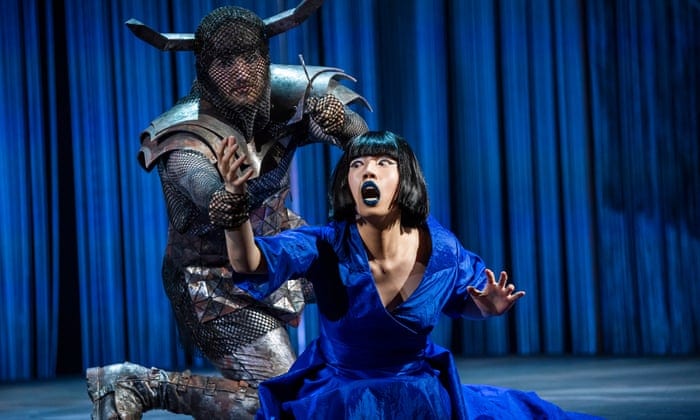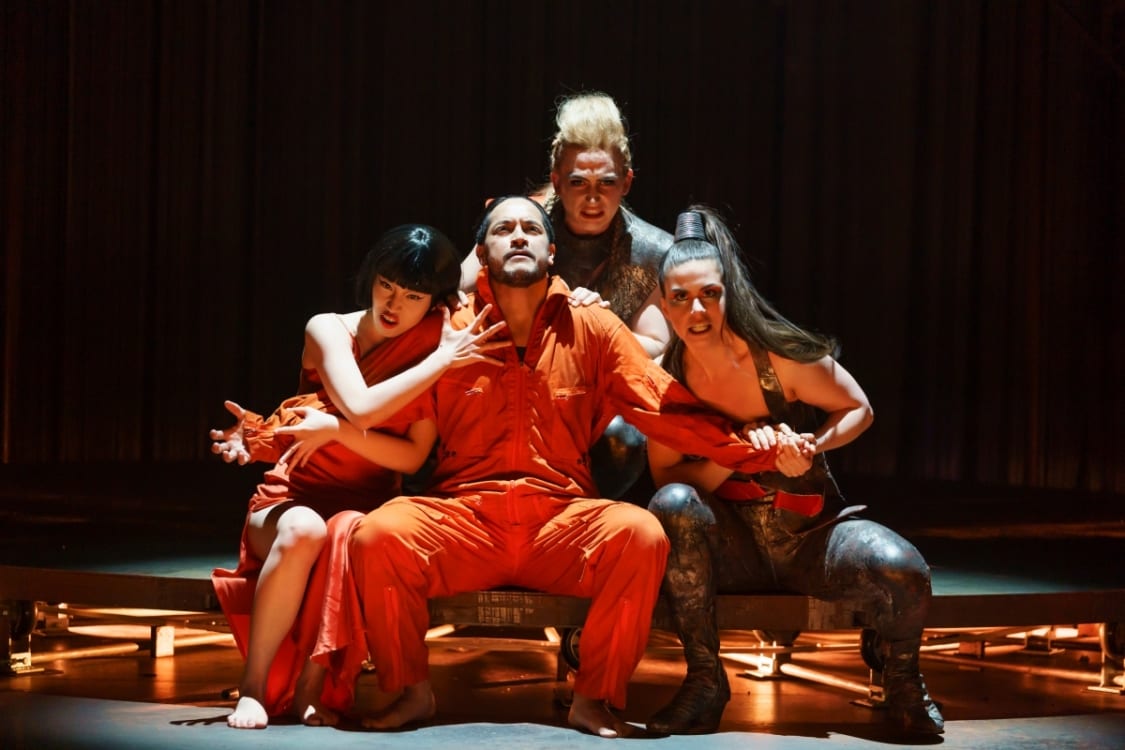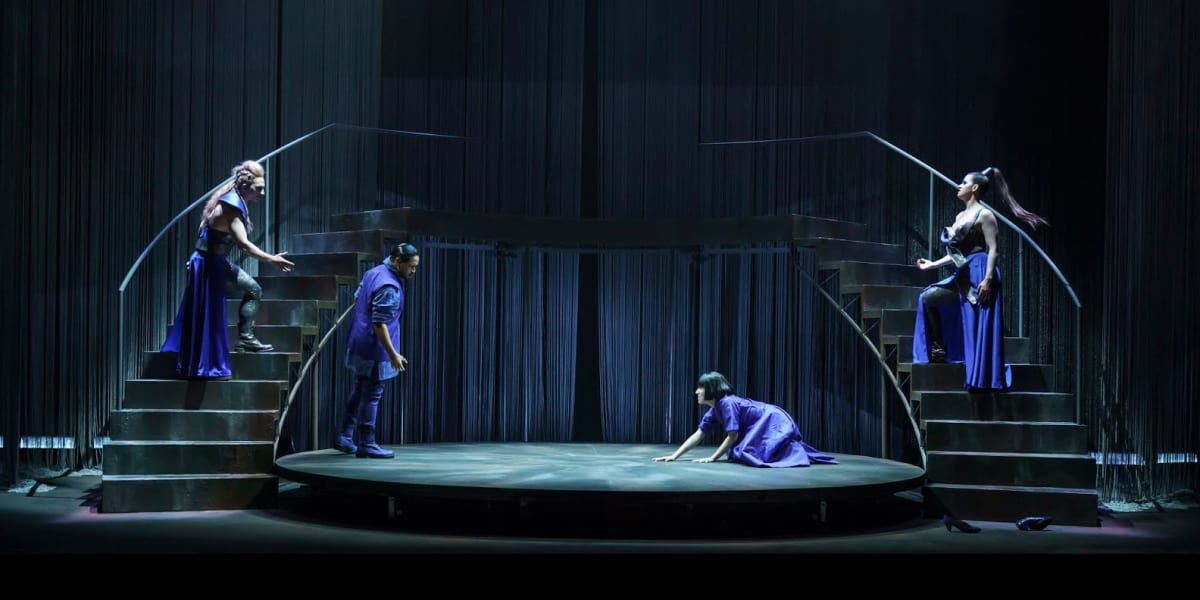This concert-opera (konzertoper) piece must be heard a number of times before one can grasp some of the music’s intricate and fascinating instrumental textures and appreciate the pre-recorded electronic music that has been embedded in the score for a 23-part ensemble and five singers. Within the tight structure, there are changes of scene, arias and duets, all crisply executed by singers and the Southbank Sinfonia orchestra. There are rapid repeating notes, which intermingle with a harsh electronic collage of sounds, carrying the drama into unfamiliar territory. And there is a Minotaur that casts his shadow throughout the work.
Musically and dramatically the young team’s debut performance of Hans Werner Henze’s penultimate, opera, Phaedra, at the Royal Opera House’s newly refurbished Linbury Theatre, is mesmerising. This 85-minute long two-act piece was first staged in Berlin in 2007, and more than nine worldwide productions have followed since. Noa Naamat, the young director, and Edmund Whitehead, the conductor, with their fresh approach, elicit exquisite beauty from the performers in this challenging interpretation.
Act I, titled ‘Morning’ is a highly compressed retelling of the mythological account of Phaedra so that it feels like walking in a dense forest, despite the fact that the unfolding narrative is familiar. On the other hand, Part II, titled ‘Evening’ draws one into an airier fantasy world where the gods reside and the dead are living.

The German poet Christian Lehnert’s libretto draws on Euripides’s Hippolytus and Ovid’s Metamorphoses and more. His Phaedra is a victim of the powerful Aphrodite who retaliates against Hippolytus’s singular devotion to Artemis. As part of Aphrodite’s revenge strategy, Phaedra, a collateral victim, is made to lust obsessively for her stepson, Hippolytus. Phaedra’s humiliation translates into revenge that leads to Hippolytus’s tragic death and her suicide. The story may have ended at this point as in the original Greek myth, whereas in this version it is almost like a mere prelude to what to follow in Act II. It may be appropriate to mention here that the frail 80 year- old composer, Henze, went into a two-month coma between composing act one and act two of Phaedra. In act two, Hippolytus is resurrected by Artemis and eventually crowned as King of the Forest.

Noa Naamat, the young director, takes the bull by its horns when faced with the constant presence of the Minotaur and a number of mythological gods who abuse their powers. She alludes to Greek theatre and explores references in the libretto to colour and dramatic effects. Some of the dialectical themes that run through the piece find expression in an elegant way.
The production opens and ends with the Minotaur flat on his back, dressed in metallic grey with horns made of shape blades, in its last struggle to stay alive. It takes the journey between the opening and closing scene into the realm of a mental journey of the inner-self which fits well with the dream-like journey in act two.
Mezzo-soprano, Hongni Wu’s Phaedra is passionate and sensual. She navigates with understated force, the complex coloratura required for the role. Filipe Manu’s Hippolytus is a naïve, inward-looking character who willingly submits to Artemis the goddess that resurrected him. Artemis is eloquently performed by the countertenor Patrick Terry. The soprano Jacquelyn Strucker is agile and forceful Aphrodite. Her singing matches her acting and she delivers a goddess one would not want to confront. Michael Mofidian’s Minotaur towers, physically and vocally, once he opens his mouth. He is constantly present, watching and waiting. It is before the end of the opera that his face is revealed and his voice is heard. He is the beast within us, the self-destructive beast that is silent and present until triggered into action.
The set-design has a pair of curved staircases and a backdrop of a curtain made of beaded strings which gives an illusion of a domestic interior. There is no set change throughout the opera that leads one to consider that Naamat’s interpretation is that the whole narrative is a mere dream or an internal psychological experience.
It is a pity that this production had a short run. All participants proved worthy of the prestigious Jette Parker Young Artists Award.

